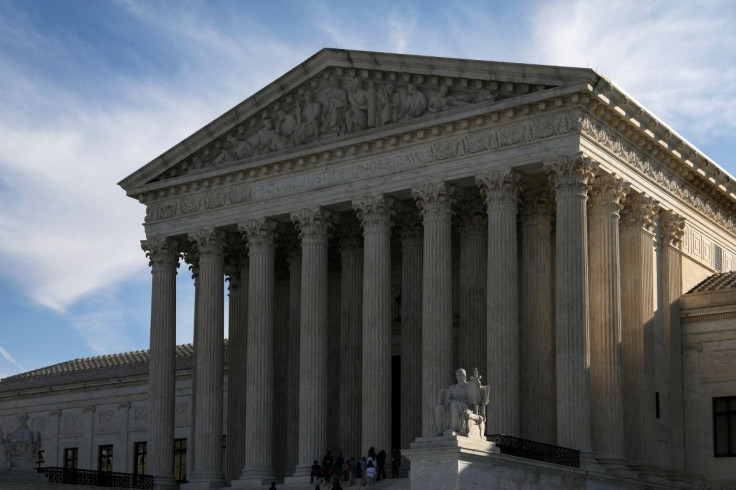U.S. Supreme Court Rules Against Former College Trustee In Fight Over Censure

The U.S. Supreme Court on Thursday threw out a lawsuit by a former board of trustees member at a Texas community college accusing the school of violating his constitutional free speech rights by publicly censuring him for "reprehensible" behavior during his stormy tenure.
The justices unanimously overturned a lower court ruling that revived David Wilson's lawsuit in which he claimed that the Houston Community College System's censure - a formal act of discipline - violated his rights under the U.S. Constitution's First Amendment.
The case involved the ability of publicly elected bodies - like this college board of trustees - to respond to a member's speech or conduct with censure. Wilson was elected to the board at the college, a public institution in the largest city in Texas, with an enrollment of more than 50,000 students, and served between 2013 and 2019.
"In this country, we expect elected representatives to shoulder a degree of criticism about their public service from their constituents and their peers - and to continue exercising their free speech rights when the criticism comes," conservative Justice Neil Gorsuch wrote in the ruling.
Gorsuch added that Wilson's right to speak freely "cannot be used as a weapon to silence other representatives to do the same."
Censure has been employed by democratic institutions throughout U.S. history. Members of the U.S. Congress have faced censure on occasion dating back two centuries.
For example, the U.S. House of Representatives in November censured Republican congressman Paul Gosar, a staunch ally of former President Donald Trump, over an anime video that depicted him killing Democratic congresswoman Alexandra Ocasio-Cortez and swinging two swords at President Joe Biden.
Wilson is described in local media accounts as a longtime anti-LGBT activist. He previously mounted a petition to amend Houston's city charter to bar men "who perceive or express themselves as women" from entering women's restrooms, according to the Houston Chronicle.
Wilson said he ran for a board seat to expose college mismanagement. He criticized board decisions in the news media and through robocalls, hired a private investigator to uncover alleged corruption, claimed on his website that other board members had engaged in unethical or illegal conduct and sued the board twice for actions he opposed.
The board voted to censure him in 2018, finding that his conduct was "not only inappropriate, but reprehensible." The discipline also revoked his privileges as a trustee to access certain funds for college-related travel and other activities.
Wilson sued to stop the censure's enforcement, seeking monetary damages including for mental anguish.
The New Orleans-based 5th U.S. Circuit Court of Appeals in 2020 overturned a federal judge's decision to throw out the case, allowing it to proceed. The 5th Circuit ruled that a "reprimand against an elected official for speech addressing a matter of public concern is an actionable First Amendment claim."
The 5th Circuit, however, found that the other measures against Wilson did not violate his constitutional rights.
© Copyright Thomson Reuters 2024. All rights reserved.





















